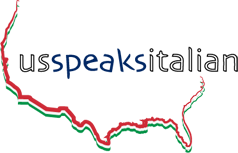Pronouncing Students' Names Correctly Should Be a Big Deal
from: 
Pronouncing Students' Names Correctly Should Be a Big Deal

Good teachers would never want to do anything that makes a student feel ashamed or embarrassed. They would never want to do anything that leads students to distance themselves from their backgrounds. But if teachers don’t put in the necessary effort to pronounce students’ names correctly, that might be exactly what they are doing.
I come from a teaching background myself, so I understand the struggle. I taught social studies and English to about 800 diverse 7th graders for five years, so I know the struggle of having to learn, memorize, and correctly pronounce a lot of names (and I’ve made my fair share of mistakes). I recognize how arduous of a task it can be to get names right every time.
But pronunciation matters. Research has found that students' socioemotional well-being and worldview can be negatively impacted by teachers' failure to pronounce their names properly, and can even lead students to shy away from their own cultures and families.
This is familiar territory for many teachers. Educator Jennifer Gonzalez, the creator of the website Cult of Pedagogy, puts it best: "Mutilating someone's name is a tiny act of bigotry." And Adam Levine-Peres, a teacher who created the online series "Project Bronx," suggests that mispronouncing a student's name fails to establish an environment of trust, sends the message that perseverance is not important, and communicates disrespect.
Even the National Education Association reports that minimizing the significance of getting a name right is a kind of microaggression—an everyday act of discrimination.
Speaking From Personal Experience
I am South Asian American and spent over a decade mispronouncing my name for my own teachers to make it easier for them to say. My name is pronounced Pu-nee-tha; but for years, I said "Puh-nee-da." I’m not alone in doing this; a lot of South Asian Americans I know offer an Americanized pronunciation of their names (Unn-jal-ee goes by "Anne-julie"), if not another name entirely (Sanket goes by "Prasad"). In spite of offering teachers what I imagined was an easier version of my name, most still pronounced it wrong ("Poo-needa?" "Paw-needa?").
In fact, my own frustrating experiences informed the work I’m doing now: I founded an outreach organization to improve South Asian American students' experiences in schools. When I spoke with South Asian American students about their experiences, many indicated in interviews that they didn’t feel teachers understood them or their cultures or knew how to say their names. And the importance of pronunciation goes beyond any one background or culture—it’s important for all students, no matter where they’re from.
Knowing that this issue is widespread and cuts deep doesn’t necessarily make the pronunciation task for teachers any easier. So what's a teacher to do during preservice week, when she or he is handed a full roster of difficult-to-pronounce names—especially when they may be responsible for over 100 students?
I created a guide—thanks to my own research and experiences (and to Twitter crowdsourcing from fellow South Asian Americans and educators serving diverse populations—with tips to help educators develop strategies for pronouncing the many diverse names they are expected to learn every year.
continue reading on EDUCATION WEEK


